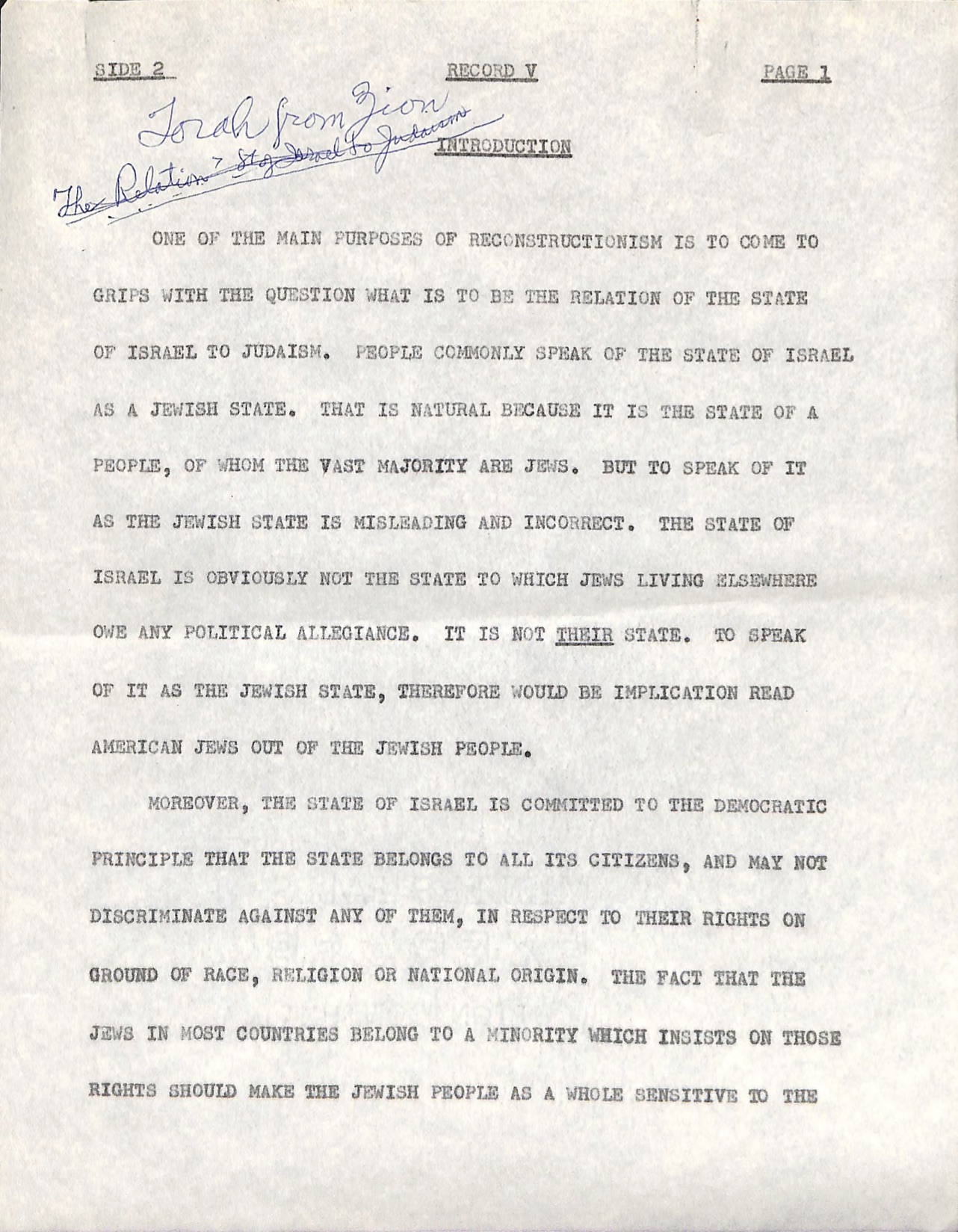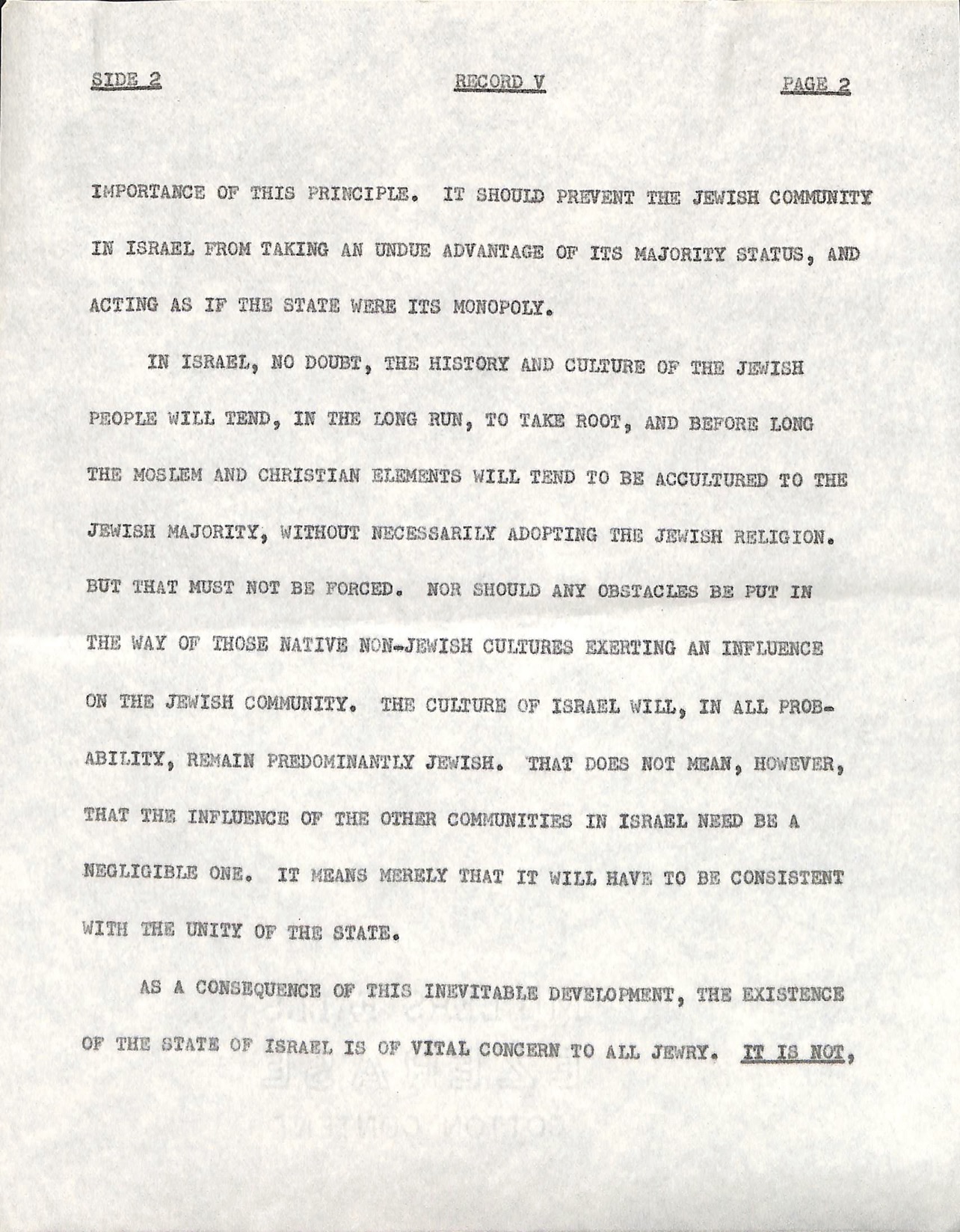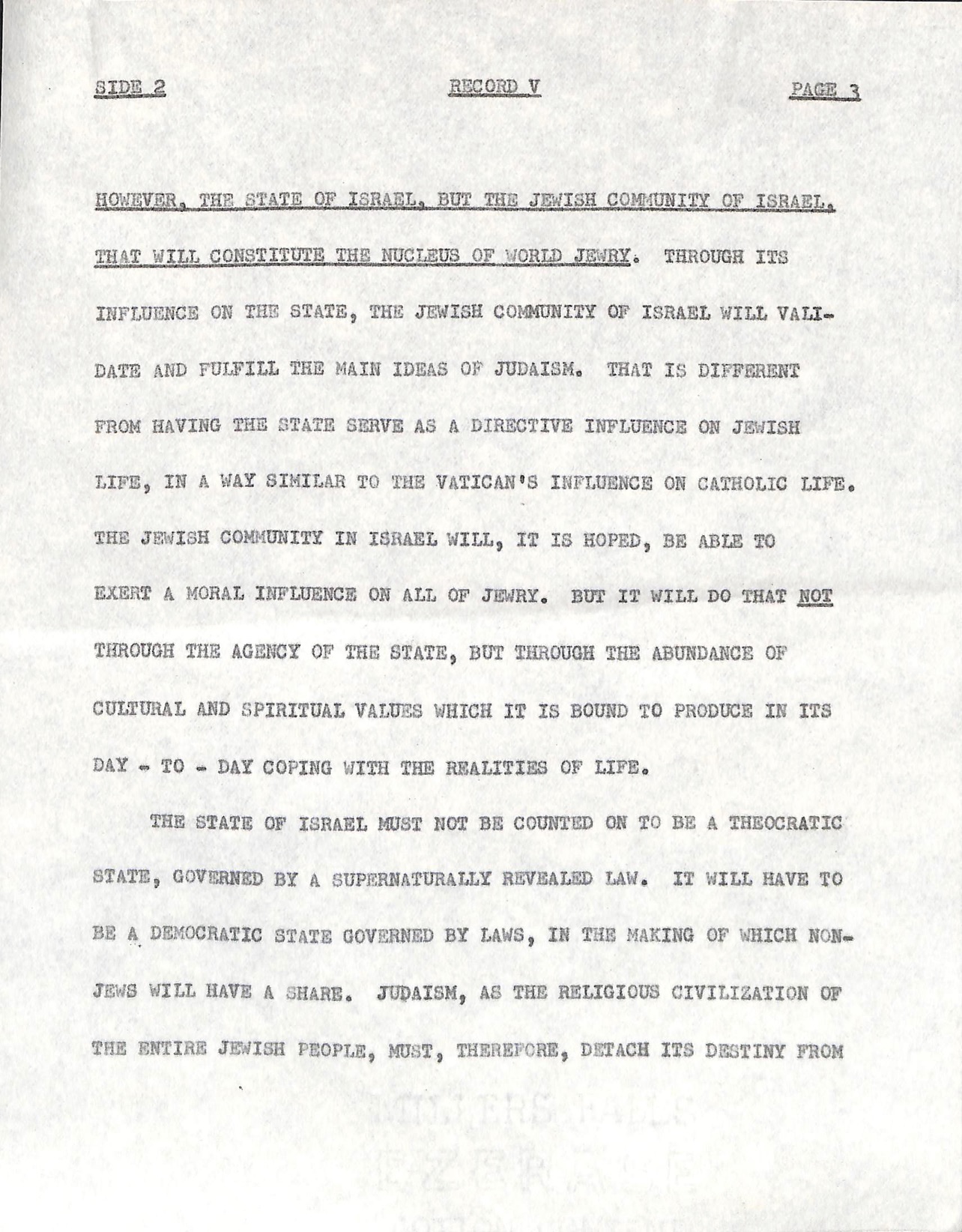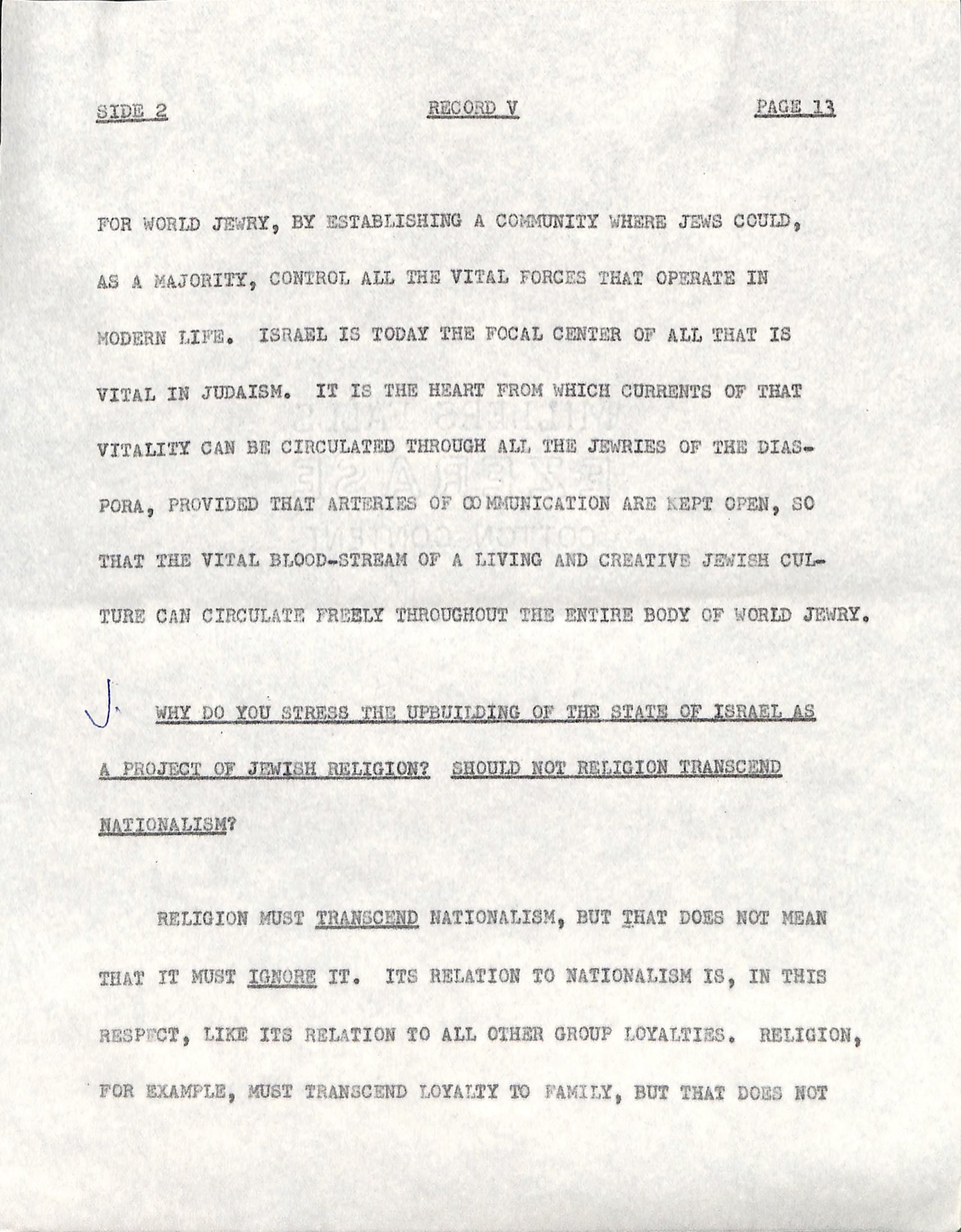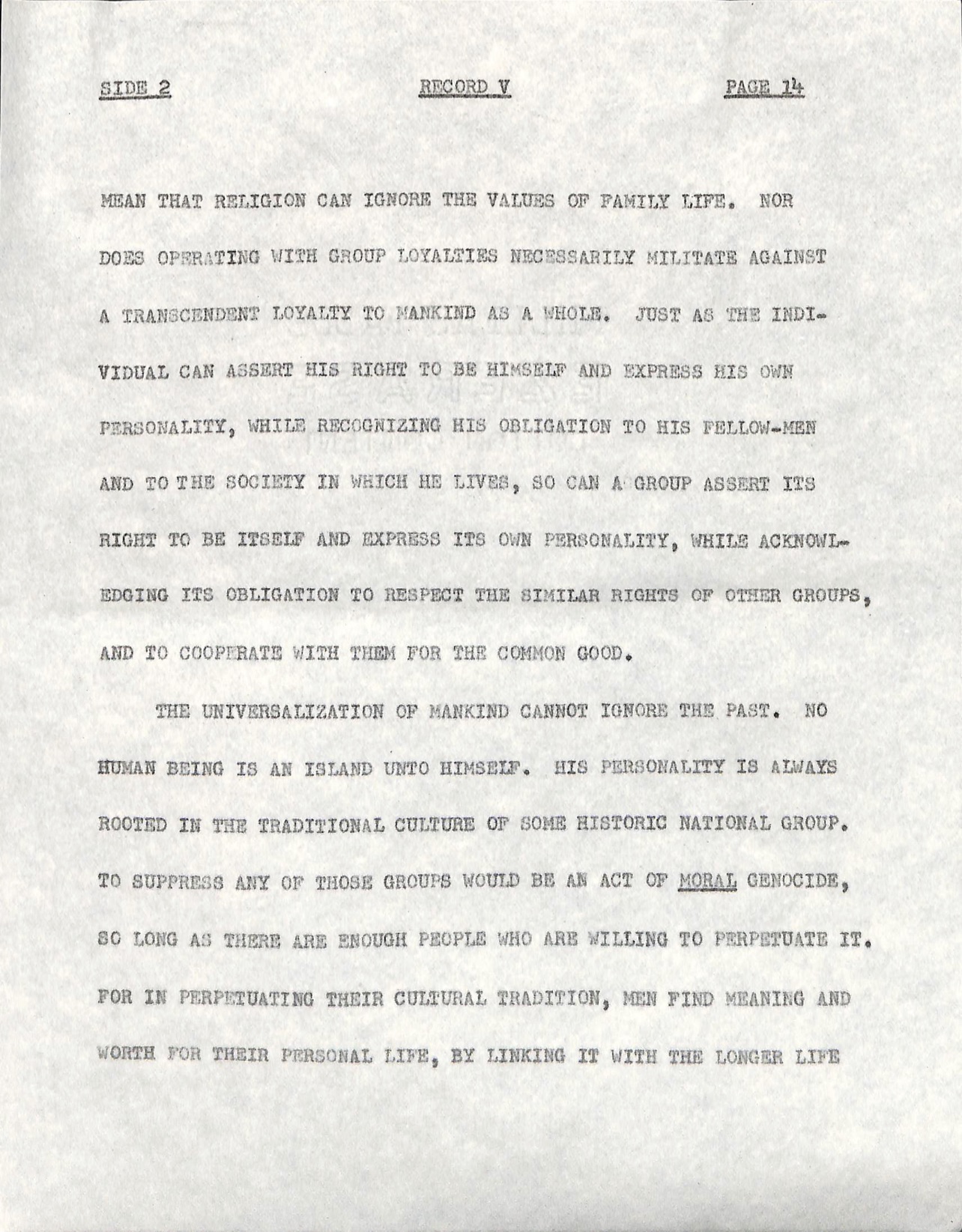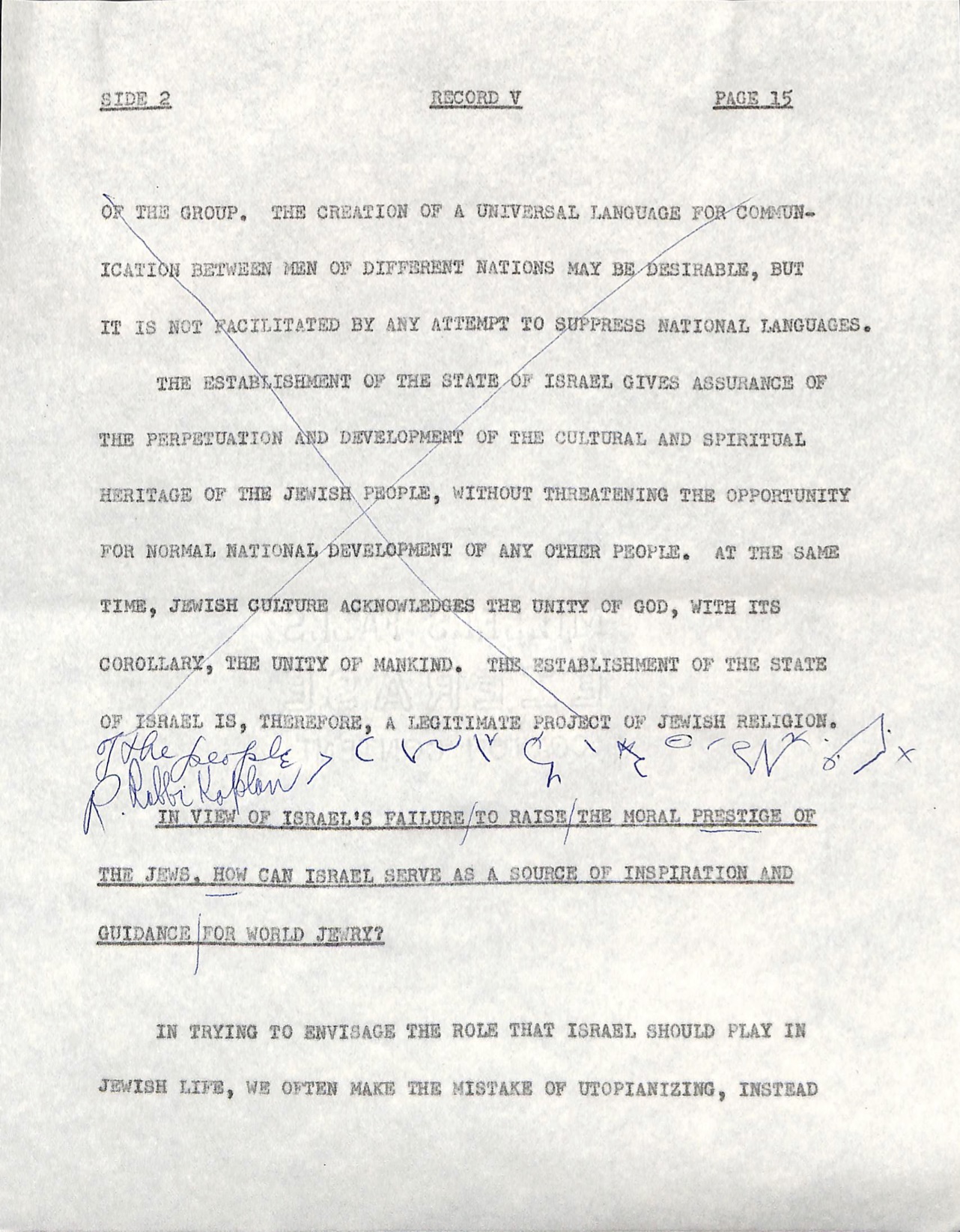Rabbi Kaplan’s observations on Israel and Zionism, highlighted in the following clips, lend an opportunity to reflect historically and incorporate the context of our present day.
Thus, in place of Operation Messianic Return, they began to plan Operation Jewish Future. Only when to their spiritual insecurity was added the physical insecurity, because of the rise of anti-Semitism in central European countries and the outbreak of government-abetted pogroms in Russia in 1881, did the Jewish intellectuals or [inaudible] definitely translate Operation Jewish Future into active colonization of Jews in Eretz Israel. Only then did it evolve into the Hope of Tzion movement. Mainly, the sense of physical insecurity brought about at long last a phase of Zionism which definitely tied the Jewish future to the reclamation of our ancient homeland. Nevertheless, the original purpose of overcoming the spiritual insecurity was not lost sight of. Herzlian Zionism essentially remained cultural Zionism. Physical danger, unlike the spiritual insecurity which only the intellectuals were capable of experiencing, was felt and understood by the masses. Toward the end of the 19th century, the growing fear of being crowded back into the ghettos and of once again being subjected to cruel persecution, led the Jewish masses in eastern Europe to respond to the call of Herzl, to plan immediately Operation Rescue. That is the meaning of political Zionism. In this country, Operation Rescue gave rise to men's organizations, for the purpose of furthering political Zionism as defined in the Basel program, and to women's organizations, for whom it took on the special form of Operation Mercy. It would be untrue to characterize American Zionism as little more than a form of philanthropy. American Zionism has been the main object of the wisecrack that it is a movement in which one Jew asks another Jew for money to send a third Jew to Eretz Israel. The fact is that no Zionist activity in America has been totally devoid of participation in the original Operation Jewish Future.
Loss of belief in the Mosaic authorship of the Torah, and in the historicity of the miracles recorded in it, seemed to me then as ominous to the survival of Judaism as the destruction of the first and second Temples of Jerusalem must have appeared to those who witnessed them. I went through my storm and stress period during the first decade of this century when the Zionist movement, despite its seemly quixotic character, was beginning to make headway in this country. From the very start, that movement had an ambivalent character. The Zionism promulgated by Theodor Herzl, as a movement to establish a Jewish state, was a reactive response to anti-Semitism. As such, it was a means of salvaging the Jews from impending doom by finding for them a haven of refuge. The Zionism promulgated by Ahad Ha'am was a creative response to the disintegration of Judaism. As such, it spelled the rebirth of Judaism in the land of its origin. As an American Jew removed from the European scene, I was troubled much less by the menace of anti-Semitism than by the disintegration of Judaism. I experienced that disintegration in my own person when the Bible and the Talmud lost their authority for me. At that juncture in my life, Ahad Ha'am came, as it were, to my rescue.
His series of essays entitled "At The Crossroads" made me realize that Judaism did not depend upon the authoritative character of the Bible and the Talmud, but upon the will of the Jews to live as a people. That was the most illuminating moment in my life. It opened up new vistas of thought and spirit. It revealed to me the existential reality of the Jewish people. I became poignantly aware of the Jewish people in the same way as we become aware of our country when it is threatened by invasion. This poignant awareness then afforded me the spiritual anchorage I sorely needed. I discovered that the essence of living as a Jew was the acceptance and belonging to, the self-involvement in the life of a people animated by a common will to live. The potency of that common will to live of the Jewish people was such as to find expression in a common history, a common tradition, and a sense of common destiny. No matter how much I doubted the historicity of the miracles and the supernatural origin of the Torah, I could not doubt the existence of the Jewish people and its claim upon me to help it live creatively. It was at that point that the nature of my conditioning during the first seven years of my young life bore fruit. It helped to give body to the notion of the existential reality of the Jewish people. For it convinced me that the Jews had enough in their own unsupplemented way of life, all that was necessary for living a full and good life, all that we associate with the term civilization.
Our inner problem as Jews was therefore not how to maintain the infallibility of a tradition but how to save our people from disillusion. The problem was how to get its men and women to retain and maintain their sense of oneness. That sense of oneness had never been challenged before the advent of modern nationalism. For as long as Jews were kept out of the general body politic, their very segregation reinforced their will to live as a people. But with the advent of the modern nation that no longer required church affiliation as a condition of citizenship, and when the incorporation of Jews into the general body politic, their status as a people has become increasingly ambiguous. That ambiguity has had a corroding effect on the will to live as a Jew. An effect that mere religious revival whether orthodox or modernist cannot counteract. It is impossible for Judaism to exist without Jews and it is impossible for the Jews to exist without an identifiable status possessing Jewish people. Jews today are actually like veterans of a disbanded army, mistaking their periodic parades for military service. It was this interpretation of the crisis in our inner life as Jews that opened my eyes to the need of affecting a Copernican revolution in the very understanding of Judaism.
